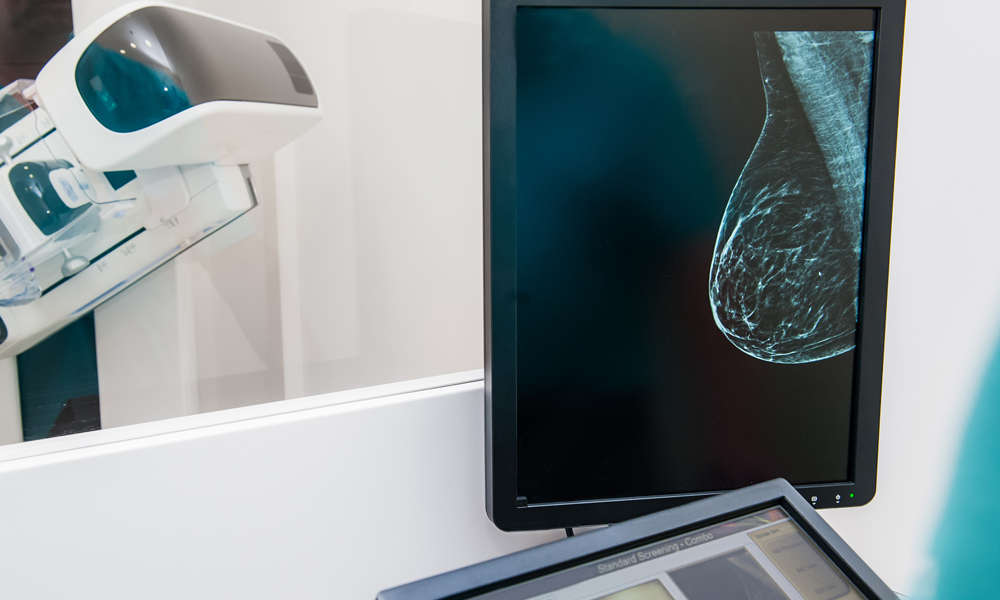After a breast cancer diagnosis, everything can seem focused on the purely physical, from imaging and exams to fatigue, side effects of medication, and preparation for surgery. It’s common for patients to become disconnected and detached as they wrestle with the stress of their breast cancer diagnosis and treatment. But maintaining a healthy mind-body connection is a factor not to be ignored in the success of your breast cancer treatment and overall mental health, as well as your risk of long-term side effects.
Let’s take a look at the effects of stress on your potential for breast cancer recovery, as well as some of the skills you can develop to reconnect your body and mind after a difficult diagnosis.
Research indicates that regular yoga and meditation can ease many of the most common side effects of breast cancer and treatment, including nausea, anxiety, fatigue, pain, sleeplessness, and depression.
Stress and Breast Cancer
The effects of stress make the innate connection between our minds and bodies obvious. Stress affects every aspect of our lives, from vulnerability to depression and anxiety to sleep problems, our risk of chronic illness, and debilitating muscle and joint pain. But can stress affect your experience of breast cancer – or possibly even cause it to return?
A study funded by the National Institute on Aging and the National Cancer Institute [1] suggests that it’s a possibility. The findings suggested that, in women with metastatic or recurrent breast cancer, chronic stress – even unaddressed trauma from early in life – could lead to more significant symptoms and possibly even a higher risk of recurrence.
While a breast cancer diagnosis itself can be traumatic and is inherently stressful, there’s good news. The study’s authors concluded that dealing with stress and anxiety head-on, whether through counseling or mindfulness practices, could be a key aspect of ongoing cancer treatment and recovery.
Over 11 hours of video content are now available to stream from any device. If you cannot attend our annual Summit at Terranea Resort, sign up for the Virtual Summit instead and get the same information from the in-person Summit in the convenience of your own home.
The Healing Power of Mindfulness
One increasingly popular approach to stress management and mind-body connection during breast cancer treatment is the incorporation of mindfulness into clinical treatment and daily life.
Mindfulness, which encompasses practices like meditation, breathing exercises, and certain forms of supportive therapy, is a means of being aware and present in the moment. In a mindful approach to eating, sleeping, breathing, working, moving, and even living, every breath matters. Every second is sacred and alive.
Research suggests that mindfulness makes a profound difference for breast cancer patients and survivors, both physically and mentally. A study conducted by the Tom Baker Cancer Centre of Alberta Health Services and the University of Calgary Department of Oncology indicated that, when it comes to a mind-body connection and breast cancer, mindfulness can affect survivors at the cellular level. [2] [3]
Telomeres are proteins at the ends of chromosomes, which prevent cells from aging and cancer from spreading. Study participants who entered a discussion group focused on openly expressing and working through difficult emotions rather than suppressing them, as well as those who practiced mindfulness meditation and gentle yoga, maintained their telomere lengths more than the control group participants.
These study findings are nothing short of profound. They indicate that mindfulness, in addition to contributing to your emotional and mental wellness, could actually lead directly to physical healing.
Stay Connected
Stay Connected
Can Yoga aid in your Cancer Treatment?
Yoga is often incorporated into breast cancer treatment plans as a means of managing stress, healing the body at a cellular level, and practicing mindfulness actively.
Hitting the mat can have tangible benefits in your breast cancer treatment. Yoga cultivates a fluid connection between your mind and body as you become more aware of your breath, as well as how your body and thoughts respond to dynamic movement and stillness alike.
Research from Duke University indicates that a regular yoga practice can ease many of the most common side effects of breast cancer and treatment, including nausea, anxiety, fatigue, pain, sleeplessness, and depression. [4]
Like meditation, yoga has the added benefit of reconnecting your brain and body, so you can work through your breast cancer diagnosis and treatment with as little stress and as much peace as possible.
Following a breast cancer diagnosis, your whole world may feel disconnected. Reconnecting with your body is a great way to begin reassembling the pieces and taking back your life.
References
- https://medlineplus.gov/magazine/issues/winter08/articles/winter08pg6b.html
- https://www.oncologynurseadvisor.com/web-exclusives/cellular-evidence-for-mind-body-connection-in-breast-cancer-survivors/article/384118/
- https://www.huffingtonpost.com/laura-sage/5-benefits-of-meditation_b_10617412.html
- https://www.yogajournal.com/lifestyle/healing-refuge




























